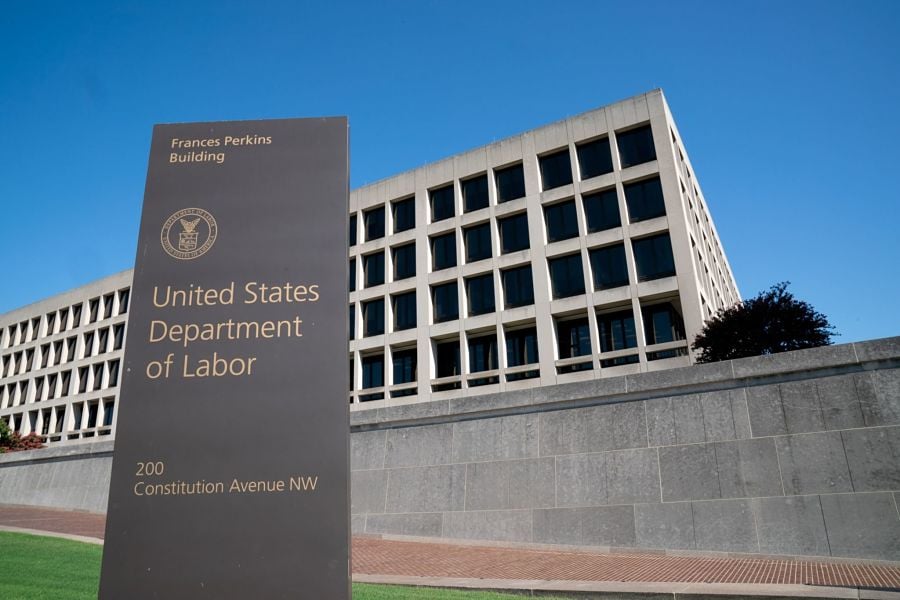

A federal court in Tampa, Florida, on Monday struck down Department of Labor guidance that made a rollover recommendation fiduciary investment advice.
The U.S. District Court for the Middle District of Florida ruled that the DOL was “arbitrary and capricious” in its interpretation of a five-part test to determine whether a financial advisor is a fiduciary to a retirement account.
In an April 2021 frequently asked questions document, the DOL asserted that a one-time recommendation to roll retirement assets from a company plan to an individual retirement account triggered fiduciary duty requirements under federal retirement law, the Employee Retirement Income Security Act.
The American Securities Association filed a lawsuit in the Florida federal court alleging that the DOL interpretation of the five-part test was too narrow. Instead, the group said that rubric, which dates back to 1975, established that an ongoing relationship between an advisor and client was required to be subject to fiduciary requirements.
District Judge Virginia M. Hernandez Covington ruled that the DOL’s FAQ answer conflicts with the existing regulation and that “it is an arbitrary and capricious interpretation of the 1975 regulation.” She vacated the policy referenced in FAQ 7 and sent it back to the DOL for further work.
“[W]hile an offer to provide future advice may, as the department suggests, be the beginning of a relationship, that relationship is inherently divorced from the ERISA-governed plan,” Covington wrote in her opinion. “Because any provision of future advice occurs at a time when the assets are no longer plan assets, it is not captured by the ‘regular basis’ analysis. Because the policy referenced in FAQ 7 abandons this plan-specific focus in the context of rollovers, it sweeps conduct into its purview that would not otherwise trigger fiduciary obligations.”
In a mixed decision, Covington denied the DOL’s motion to dismiss the suit, while granting DOL summary judgment on counts that involved other ASA allegations against the FAQs. For instance, she upheld an FAQ focusing on a requirement to document rollover advice, saying it did not require a rulemaking process.
The ASA celebrated its victory on the FAQ about one-time rollover advice.
“ASA is pleased the court recognized the DOL operated outside the scope of its legal authority and vacated its unlawful policymaking through guidance,” ASA CEO Chris Iacovella said in a statement. “ASA filed this lawsuit to protect investor choice and America’s retirement savers from administrative overreach and the court agreed the DOL’s failure to seek public comment before changing its rules about retirement advice was a violation of the Administrative Procedure Act.”
A DOL spokesperson referred a request for comment to the Department of Justice, where a spokesperson was not immediately available.
The court decision comes as the Biden administration is considering a rule proposal that would expand the definition of fiduciary under ERISA. The proposal would build on a Trump administration rule the DOL let stand at the beginning of the Biden administration.
The work on an investment advice regulation began in the Obama administration, which promulgated a fiduciary rule for retirement accounts. Financial industry opponents filed a lawsuit, and it was vacated in a federal court in 2018.

Since Vis Raghavan took over the reins last year, several have jumped ship.

Chasing productivity is one thing, but when you're cutting corners, missing details, and making mistakes, it's time to take a step back.

It is not clear how many employees will be affected, but none of the private partnership's 20,000 financial advisors will see their jobs at risk.

The historic summer sitting saw a roughly two-thirds pass rate, with most CFP hopefuls falling in the under-40 age group.

"The greed and deception of this Ponzi scheme has resulted in the same way they have throughout history," said Daniel Brubaker, U.S. Postal Inspection Service inspector in charge.
Stan Gregor, Chairman & CEO of Summit Financial Holdings, explores how RIAs can meet growing demand for family office-style services among mass affluent clients through tax-first planning, technology, and collaboration—positioning firms for long-term success
Chris Vizzi, Co-Founder & Partner of South Coast Investment Advisors, LLC, shares how 2025 estate tax changes—$13.99M per person—offer more than tax savings. Learn how to pass on purpose, values, and vision to unite generations and give wealth lasting meaning
